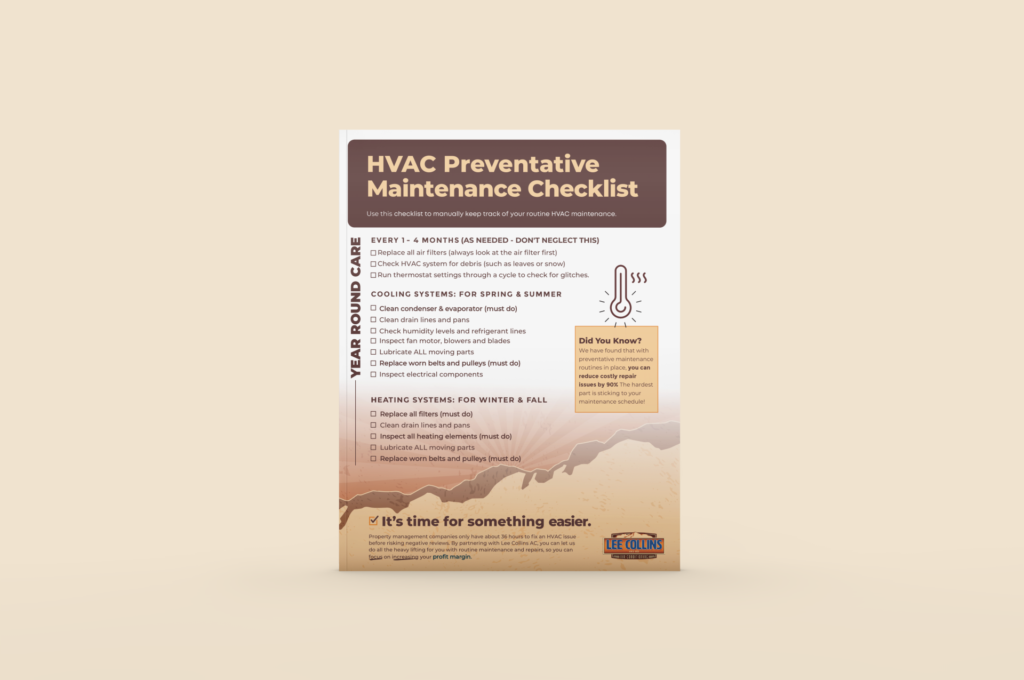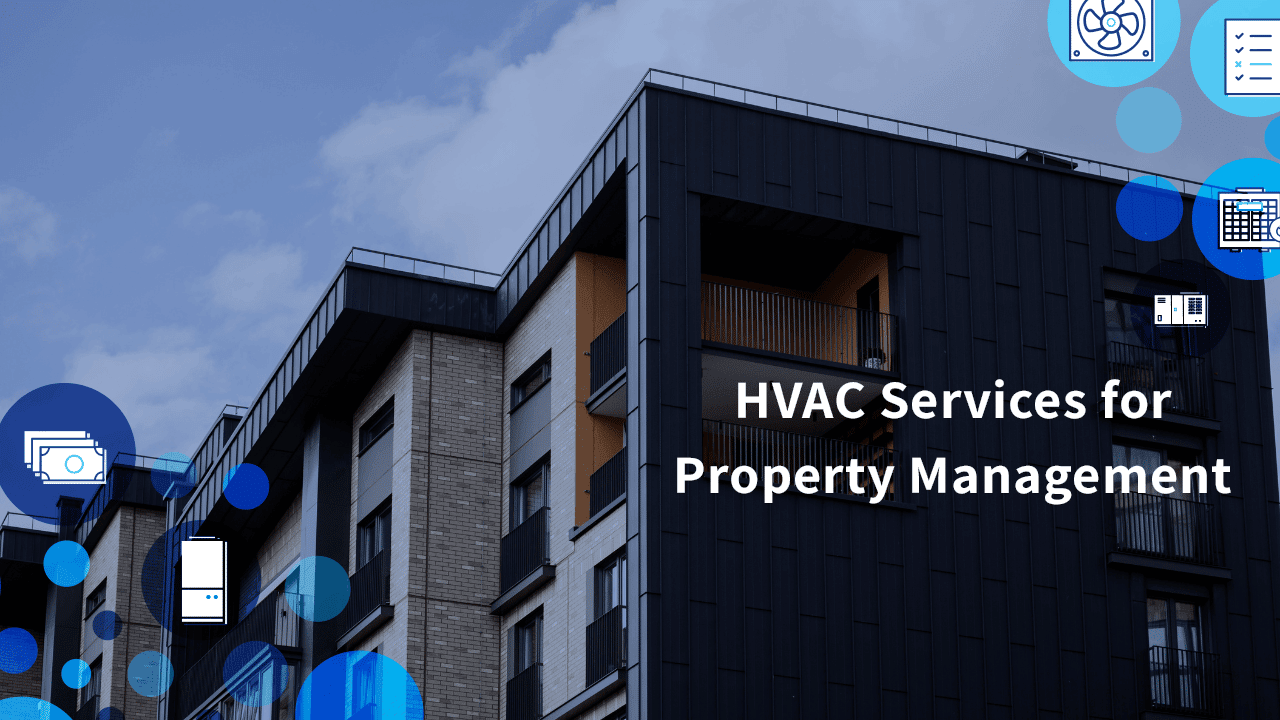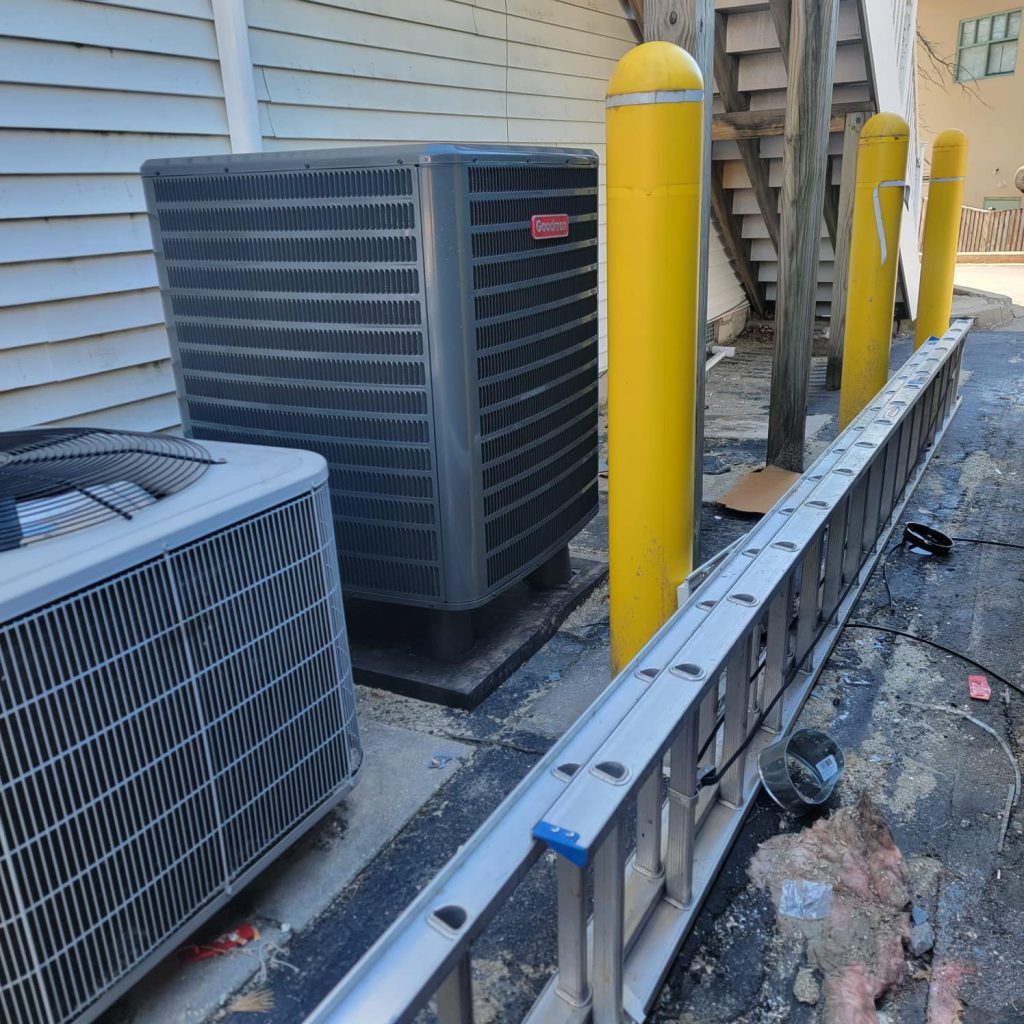Property management is a dynamic field that requires attention to detail, especially when it comes to HVAC systems. HVAC (Heating, Ventilation, and Air Conditioning) is a critical component of any property, ensuring comfort, air quality, and energy efficiency. A well-maintained HVAC system not only enhances tenant satisfaction but also reduces operational costs in the long run. Property managers who prioritize HVAC systems can create an environment that promotes health, safety, and productivity.
In this guide, we will explore the essential aspects of HVAC for property management. From understanding the basics of HVAC systems to implementing effective maintenance strategies, this article provides actionable insights for property managers. By the end of this guide, you'll have a deeper understanding of how HVAC systems work and how they contribute to property value.
Whether you're a seasoned property manager or just starting, HVAC plays a pivotal role in maintaining the functionality and appeal of your property. Let's dive into the world of HVAC and discover how it can transform property management practices.
Read also:Ronnie Colemans Children A Glimpse Into The Family Life Of A Bodybuilding Legend
Table of Contents
- Understanding HVAC Systems
- Key Components of HVAC Systems
- The Importance of HVAC in Property Management
- HVAC Maintenance for Property Managers
- Boosting Energy Efficiency with HVAC
- Common HVAC Issues and Troubleshooting
- Managing HVAC Costs
- Environmental Impact of HVAC Systems
- The Future of HVAC Technology
- Final Thoughts and Call to Action
Understanding HVAC Systems
HVAC systems are designed to regulate indoor temperature, humidity, and air quality. In the context of property management, understanding these systems is crucial for maintaining a comfortable living or working environment. HVAC technology has evolved significantly over the years, offering advanced solutions for various property types.
What is HVAC?
HVAC stands for Heating, Ventilation, and Air Conditioning. These systems work together to provide thermal comfort and acceptable indoor air quality. Heating involves warming the air, ventilation ensures fresh air circulation, and air conditioning cools the indoor environment. Each component plays a vital role in creating a balanced and healthy indoor atmosphere.
Types of HVAC Systems
There are several types of HVAC systems available, each suited for different property needs:
- Split Systems: Ideal for residential properties, these systems consist of indoor and outdoor units.
- Package Systems: Often used in commercial properties, these systems combine all components into a single unit.
- VRF Systems: Variable Refrigerant Flow systems offer energy-efficient solutions for large buildings.
- Heat Pumps: These systems provide both heating and cooling, making them a versatile option for properties in moderate climates.
Key Components of HVAC Systems
To effectively manage HVAC systems, property managers must understand their key components. Each part serves a specific function, contributing to the overall performance of the system.
Heating Components
The heating section of an HVAC system includes:
- Furnace: Responsible for heating the air, which is then distributed throughout the property.
- Heat Exchanger: Transfers heat from the fuel source to the air.
Ventilation Components
Ventilation ensures proper airflow within the property:
Read also:Zach Roerig The Journey Of A Versatile Actor
- Air Ducts: Channels through which air is distributed.
- Ventilators: Facilitate the exchange of indoor and outdoor air.
Air Conditioning Components
Cooling components include:
- Compressor: Pressurizes refrigerant to cool the air.
- Condenser Coil: Releases heat absorbed by the refrigerant.
- Evaporator Coil: Absorbs heat from indoor air.
The Importance of HVAC in Property Management
For property managers, HVAC systems are more than just temperature regulators; they are critical to tenant satisfaction and property value. A well-functioning HVAC system can significantly impact the appeal of a property, making it a key consideration for both residential and commercial properties.
Enhancing Tenant Comfort
Tenant comfort is paramount in property management. An HVAC system that maintains optimal temperature and air quality ensures a pleasant living or working environment. This leads to higher tenant retention rates and positive reviews.
Improving Property Value
Properties equipped with modern, energy-efficient HVAC systems often command higher rental rates and sale prices. Investing in quality HVAC technology can increase the market value of a property, making it more attractive to potential buyers or tenants.
HVAC Maintenance for Property Managers
Regular maintenance is essential for extending the lifespan of HVAC systems and ensuring their optimal performance. Property managers should establish a routine maintenance schedule to address potential issues before they escalate.
Preventive Maintenance Checklist
Here’s a checklist for HVAC maintenance:
- Change air filters every 1-3 months.
- Inspect and clean air ducts annually.
- Check refrigerant levels and compressor function.
- Ensure proper thermostat calibration.
Benefits of Regular Maintenance
Proactive maintenance offers several benefits:
- Reduces energy consumption and costs.
- Prevents costly repairs and system failures.
- Improves indoor air quality and comfort.
Boosting Energy Efficiency with HVAC
Energy efficiency is a top priority for property managers, as it directly impacts operational costs. Modern HVAC systems offer innovative solutions for reducing energy consumption without compromising performance.
Energy-Saving Features
Some energy-saving features include:
- Smart thermostats that adjust temperature settings based on occupancy.
- Variable speed motors that optimize energy use.
- High-efficiency filters that improve air quality while reducing energy demand.
Implementing Energy Efficiency Strategies
Property managers can implement strategies such as:
- Upgrading to Energy Star-rated HVAC systems.
- Conducting regular energy audits to identify areas for improvement.
Common HVAC Issues and Troubleshooting
Even with regular maintenance, HVAC systems can encounter issues. Recognizing common problems and knowing how to troubleshoot them can save time and money for property managers.
Identifying HVAC Problems
Some common issues include:
- Insufficient heating or cooling.
- Noisy operation.
- Unusual odors from vents.
Basic Troubleshooting Steps
Here are some steps to address minor issues:
- Check thermostat settings and replace batteries if necessary.
- Clean or replace air filters.
- Inspect vents and registers for blockages.
Managing HVAC Costs
Managing HVAC-related expenses is a challenge for many property managers. By adopting cost-effective strategies, property managers can maintain HVAC systems without straining budgets.
Cost-Saving Tips
Consider these tips:
- Negotiate service contracts with HVAC professionals.
- Invest in preventive maintenance to avoid costly repairs.
- Upgrade to energy-efficient systems to reduce long-term costs.
Financial Incentives
Explore financial incentives such as:
- Tax credits for energy-efficient HVAC installations.
- Rebates from utility companies for upgrading to modern systems.
Environmental Impact of HVAC Systems
As awareness of environmental issues grows, property managers are increasingly focused on reducing the carbon footprint of HVAC systems. Sustainable HVAC practices contribute to a healthier planet and can enhance a property's reputation.
Green HVAC Solutions
Options for eco-friendly HVAC systems include:
- Geothermal heat pumps that use the earth's natural heat.
- Solar-powered HVAC systems that harness renewable energy.
Reducing Environmental Impact
Steps to minimize environmental impact:
- Choose refrigerants with low global warming potential.
- Implement energy management systems to monitor and control HVAC usage.
The Future of HVAC Technology
Advancements in HVAC technology continue to shape the industry, offering innovative solutions for property managers. From smart systems to sustainable practices, the future of HVAC is promising.
Emerging Trends
Trends to watch include:
- Integration of IoT (Internet of Things) for remote monitoring and control.
- Development of AI-driven systems for predictive maintenance.
Adopting New Technologies
Property managers can embrace new technologies by:
- Partnering with HVAC experts to implement cutting-edge solutions.
- Providing training for staff on using advanced HVAC systems.
Final Thoughts and Call to Action
HVAC systems are a cornerstone of property management, influencing tenant satisfaction, energy efficiency, and property value. By understanding the intricacies of HVAC systems and implementing effective management strategies, property managers can create a comfortable, sustainable, and cost-effective environment.
We encourage you to take action by:
- Reviewing your current HVAC systems and identifying areas for improvement.
- Implementing a routine maintenance schedule to prevent issues.
- Exploring energy-efficient and sustainable HVAC options.
Share your thoughts and experiences in the comments below, and don't forget to explore other resources on our site for more insights into property management. Together, let's elevate the standards of property management through innovative HVAC solutions!
Data and statistics used in this article are sourced from reputable organizations such as the U.S. Department of Energy, HVAC industry reports, and academic studies. For further reading, consider consulting these references for a deeper understanding of HVAC systems and their applications in property management.


